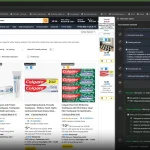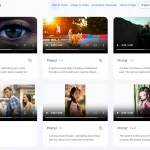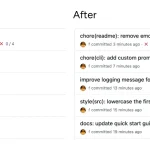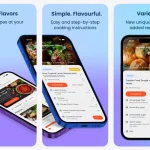Vercel
The Vercel MCP Server is a secure, hosted endpoint that connects your AI tools directly to your Vercel projects.
It acts as a standardized interface that allows supported AI clients like Claude and VS Code to interact with your Vercel account.
You can use it to pull project metadata, search official documentation, and fetch deployment logs right into your AI assistant or development environment.
Features
- 🔍 Search Vercel Docs: Get answers from the official Vercel documentation directly within your AI client.
- 📄 Retrieve Deployment Logs: When a build fails, your AI can fetch the logs to analyze the error and suggest fixes.
- 🏗️ Fetch Project & Team Data: List all teams and projects associated with your account to check configurations or access rights.
- 🔒 Secure & Read-Only: The server is currently read-only, uses an allowlist for trusted AI clients, and enforces OAuth for every connection to protect your data.
How to Use It
Add its public endpoint as a custom connection in a supported AI client.
The official endpoint is: https://mcp.vercel.com
Currently, Vercel maintains an allowlist of clients that meet its security standards, which includes Claude and VS Code. When you connect, you will always be prompted with an OAuth consent screen to authorize access, which helps prevent unauthorized actions.
General Security Recommendations:
- Only connect to MCP clients from trusted sources. Vercel maintains a list of supported tools.
- Be aware of prompt injection risks, where a bad actor could trick an untrusted tool into leaking data.
- Always review the permissions you grant. The Vercel MCP server operates within your account’s permissions.
- Whenever possible, enable human confirmation in your AI workflows to prevent accidental changes.
Vercel-Specific Security:
- Double-check that you are connecting to the official
https://mcp.vercel.comendpoint. - Vercel restricts which clients can connect through its allowlist.
- The mandatory OAuth screen helps prevent token theft and misuse.
FAQs
Q: Is this safe to connect to my Vercel account?
A: Yes, security is a primary focus. The Vercel MCP server is currently read-only, meaning it cannot make changes to your projects. It also uses an allowlist of approved clients and requires OAuth authentication for every connection, ensuring only trusted tools can access your data with your explicit permission.
Q: Can I build my own tools for the Vercel MCP server?
A: The official Vercel MCP server comes with a predefined set of read-only tools for interacting with the Vercel platform. While you can’t add custom tools to their hosted server, Vercel encourages developers to build their own MCP servers for their own systems.
Q: What happens if a deployment fails while I’m using this?
A: This is a core use case. If a deployment fails, you can instruct your connected AI assistant to use the Vercel MCP server to fetch the exact deployment logs. The AI can then analyze the logs to help you debug the issue much faster.
Latest MCP Servers
HOPX
Code Execution Mode
WPMCP
Featured MCP Servers
Monday.com
MongoDB
CSS
FAQs
Q: What exactly is the Model Context Protocol (MCP)?
A: MCP is an open standard, like a common language, that lets AI applications (clients) and external data sources or tools (servers) talk to each other. It helps AI models get the context (data, instructions, tools) they need from outside systems to give more accurate and relevant responses. Think of it as a universal adapter for AI connections.
Q: How is MCP different from OpenAI's function calling or plugins?
A: While OpenAI's tools allow models to use specific external functions, MCP is a broader, open standard. It covers not just tool use, but also providing structured data (Resources) and instruction templates (Prompts) as context. Being an open standard means it's not tied to one company's models or platform. OpenAI has even started adopting MCP in its Agents SDK.
Q: Can I use MCP with frameworks like LangChain?
A: Yes, MCP is designed to complement frameworks like LangChain or LlamaIndex. Instead of relying solely on custom connectors within these frameworks, you can use MCP as a standardized bridge to connect to various tools and data sources. There's potential for interoperability, like converting MCP tools into LangChain tools.
Q: Why was MCP created? What problem does it solve?
A: It was created because large language models often lack real-time information and connecting them to external data/tools required custom, complex integrations for each pair. MCP solves this by providing a standard way to connect, reducing development time, complexity, and cost, and enabling better interoperability between different AI models and tools.
Q: Is MCP secure? What are the main risks?
A: Security is a major consideration. While MCP includes principles like user consent and control, risks exist. These include potential server compromises leading to token theft, indirect prompt injection attacks, excessive permissions, context data leakage, session hijacking, and vulnerabilities in server implementations. Implementing robust security measures like OAuth 2.1, TLS, strict permissions, and monitoring is crucial.
Q: Who is behind MCP?
A: MCP was initially developed and open-sourced by Anthropic. However, it's an open standard with active contributions from the community, including companies like Microsoft and VMware Tanzu who maintain official SDKs.



